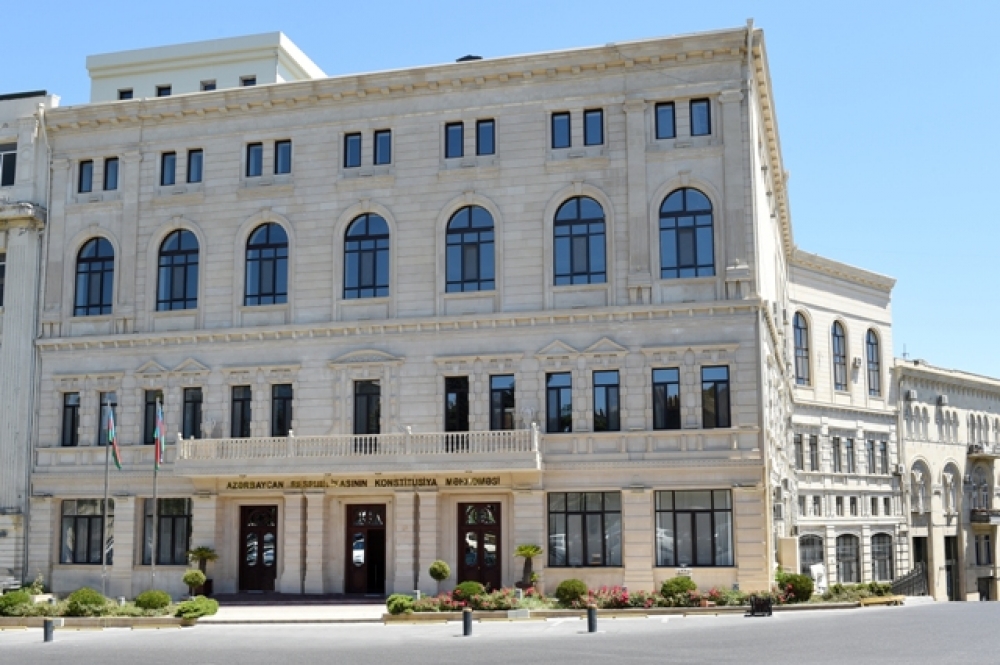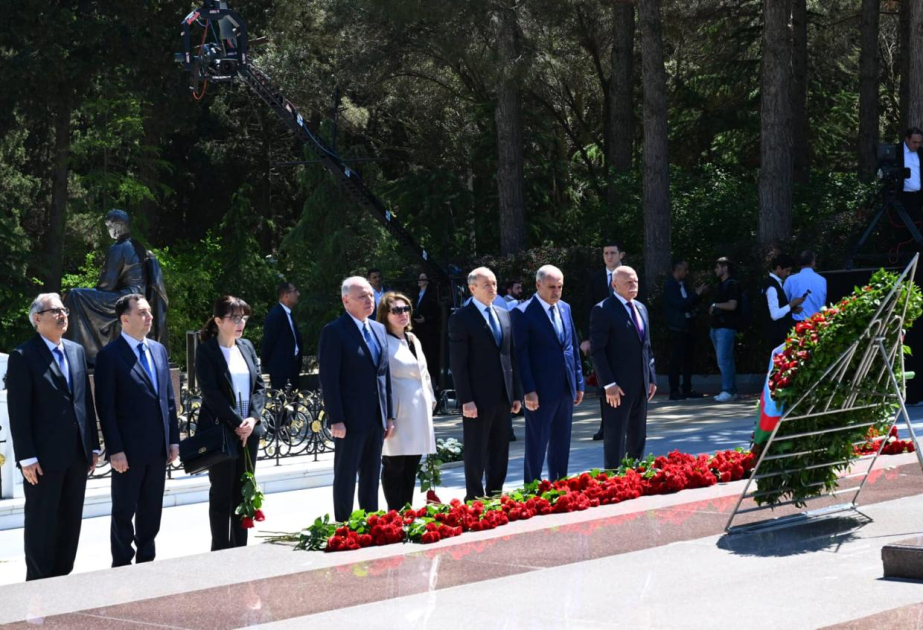28.09.2021
Plenum of the Constitutional Court of the Republic of Azerbaijan, chaired by
Farhad Abdullayev, held a session via the written procedure of
special constitutional proceedings.
At the court session was examined the constitutional
case based on the request submitted by the Court of Appeal of Ganja city on
related interpretation of Article 74 of the Criminal Code of the Republic of
Azerbaijan and Articles 39, 40 and 305.1 of the Criminal Procedure Code of the
Republic of Azerbaijan.
Having heard the report of Judge M.Muradov, studied and discussed reports of representatives of interested parties – Chairman of the Criminal Board of Court of Appeal of Ganja city T.Mukhtarov and Head of the Administrative Legislation Sector of the Department of State Building, Administrative and Military Legislation of Milli Majlis (Parliament) K.Pashayeva, conclusions of specialists – Chairman of the Criminal Board of Supreme Court H. Nasibov, Chairman of the Criminal Board of Court of Appeal of Baku city E.Rahimov and Chief of the Department of Legal Support and Human Rights of the Prosecutor General's Office A.Osmanova, opinion of experts – Head of the Department of Criminal Procedure of the Faculty of Law of Baku State University, Doctor of Law, professor F.Abbasova and Head of the Department of Law of the National Aviation Academy, Doctor of Law A.Rustamzade, the Plenum of Constitutional Court of the Republic of Azerbaijan adopted decision.
The decision states that in accordance with the
requirements of Part I of Article 60, Part II of Article 127, Articles 39,
40.2, 43.3, 299 and 305.1 of the Criminal Procedure Code of the Republic of
Azerbaijan a prosecution may be terminated with the consent of the defense if
the circumstances provided for in Article 74 of the Criminal Code of the
Republic of Azerbaijan are established only during the trial.
The provision of Article 39.1.11 of the Criminal
Procedure Code of the Republic of Azerbaijan “owing to force of the provisions of criminal law”
provides for exemption from criminal liability on the basis of the force of the
criminal law for time and place.
The decision comes
into force from the date of its publication, is final, and may not be
cancelled, changed or officially interpreted by any institution or official.


















